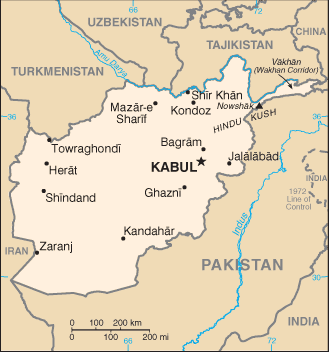15 years into the NATO occupation of Afghanistan, the Taliban controls more territory now than at any other time during the war, and the losses continue to mount for the Afghan government. The war has never been going “well,” exactly, but the losses are becoming a lot more visible.
 Indeed, the NATO nations involved in the war invested heavily in capturing and holding certain key cities, and as they began to draw down their forces, many nations sold these territorial gains, however limited they were, as their chief military accomplishments. Now, they’re watching those cities fall.
Indeed, the NATO nations involved in the war invested heavily in capturing and holding certain key cities, and as they began to draw down their forces, many nations sold these territorial gains, however limited they were, as their chief military accomplishments. Now, they’re watching those cities fall.
British forces spent over a decade trying to secure the Helmand Province, prized by insurgents for its opium production. The Taliban now controls most of the province, and is in the process of invading and capturing the capital city. Germany put its effort into Kunduz, a major city which the Taliban already captured once, and is again threatening.
These stories exist everywhere around Afghanistan, as NATO spent billions to build up an Afghan military which is falling apart at the seams, unable to properly defend much of anything, and likewise unable to recruit enough people to make up for their losses.
Afghan officials are downplaying the losses, insisting they are temporary. Yet they are losing an estimated 10,000 police a year just to casualties, above what they’re able to recruit, and in the military, force levels have always been dubious, given the widespread corruption and existence of tens of thousands of “ghost troops” created by crooked officials just to collect salaries.
The Pentagon’s ever-upbeat projections over the past 15 years centered around best-case assumptions for the size of corruption, which were woefully optimistic, and the hope that the Taliban would eventually get worn out by open-ended conflict, something which also doesn’t seem to be panning out.


